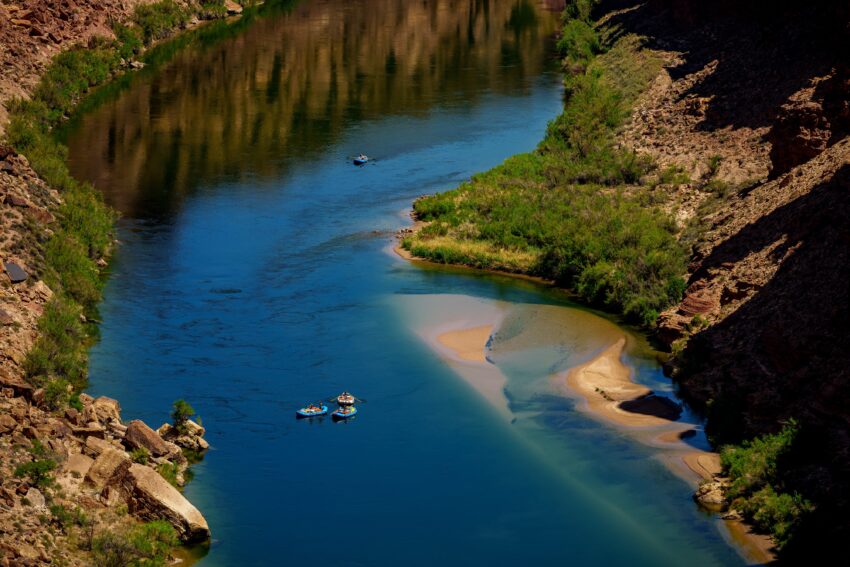“We cannot negotiate with people who say what’s mine is mine and what’s yours is negotiable.”
— John F. Kennedy
Representatives from the seven U.S. states, including Utah, that rely on the water flowing through the Colorado River system have until November 11 to propose a tentative plan to manage the ever-decreasing water supply in the basin. While it’s unclear whether substantive talks are actually happening behind closed doors, hope for meeting that deadline appears slim.
Political and financial incentives drive each state to protect its own narrow interests. Should those talks fail, the federal government may have to step in to manage the river’s resources—a prospect that might be the best we can hope for.
If that happens, Utah’s leaders should accept it. They should avoid complicating an already overdue process by filing lawsuits or lobbying Washington. A federal takeover of the river’s management—whether through executive agencies like the Bureau of Reclamation or a special master appointed by the courts—would at least offer the possibility of a comprehensive approach to the entire 246,000 square miles of the Colorado River basin.
Even oversight by an administration, such as the current one, which struggles to acknowledge climate change, could represent an improvement. Politicians from both parties in Utah, Colorado, Wyoming, New Mexico, Arizona, California, and Nevada will no doubt raise objections. But these states have had years to come to an agreement among themselves, and much of that time has been spent arguing over water that simply doesn’t exist. It’s like fighting over who gets the most fairy dust.
Year after year, we are withdrawing more water from the Colorado River than nature replenishes. Whether we call it a prolonged drought, climate change, or something else, this is the new normal we must accept.
Lake Powell and Lake Mead are no longer receiving enough water to store for future needs or to generate clean hydroelectric power for the region. Approximately 70% of the water used in the basin supports agriculture—from alfalfa fields in Utah to vegetable farms in California’s Imperial Valley.
A federal takeover, if conducted fairly, will likely lead to a reallocation of water rights across the seven states, 30 Native American nations, and Mexico. Northern states like Utah may receive less water as a result. This will mean, among other things, abandoning ill-advised projects such as the pipeline intended to draw water from the dwindling Lake Powell to supply St. George.
It will also require enforceable rules to reduce water use for everything from lawns and hay fields to swimming pools. Market forces such as higher water prices and financial incentives for conservation should be employed to curb consumption.
California, with its senior water rights, political influence, and status as the source of two-thirds of the winter produce consumed in the United States, will likely fare best in these negotiations. But even for California, the total available water will be a much smaller supply than in the past.
We can also hope for a more transparent process. The people of Utah deserve credit—if given the full picture, they may support solutions that prioritize the greater good over narrow state interests.
As for Utah officials who find themselves sidelined in this process, there is a silver lining: they will be relieved of any true responsibility for solving this complex problem while still having the perfect excuse to blame the federal government for everything.
https://www.sltrib.com/opinion/editorial/2025/10/16/if-states-cant-agree-colorado/
